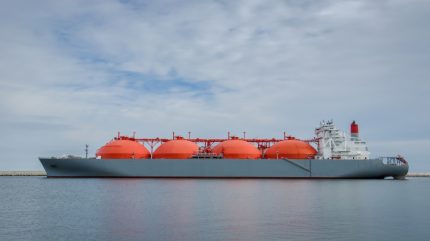
Japan’s LNG buyer JERA is set to expand liquefied natural gas (LNG) imports from the US to diversify its supply chain and meet the rising demand from data centres and AI sectors, reported Reuters.
This strategic move is part of JERA’s broader effort to secure a stable and competitive energy supply amidst global market shifts.

Discover B2B Marketing That Performs
Combine business intelligence and editorial excellence to reach engaged professionals across 36 leading media platforms.
The company, which handles 30–35 million tonnes per annum (mtpa) of LNG, currently acquires nearly half of its LNG from the Asia-Pacific region, including Australia, Malaysia and Indonesia.
Speaking on the sidelines of the World Economic Forum’s annual meeting in Davos, Switzerland, JERA LNG division head Ryosuke Tsugaru was quoted by Reuters as saying: “My plan is to increase our exposure to the US energy projects. We are now buying 3.2 million tonnes in long-term contracts from America, which is small against the total purchase amount.”
Despite the intention to increase US LNG purchases, JERA remains cautious about the long-term sustainability of LNG policies in the US, which is the world’s largest LNG exporter and shipped 88.3 million tonnes of super-chilled gas in 2024 alone.
The resumption of LNG export applications by the US Energy Department, as ordered by President Donald Trump, has been noted by the company.

US Tariffs are shifting - will you react or anticipate?
Don’t let policy changes catch you off guard. Stay proactive with real-time data and expert analysis.
By GlobalData“The US is now a major energy supplier to the global market. So we are very much hoping America continues to be [a] reliable and competitive source of supply,” Tsugaru added.
The company also recognises the risks associated with Russian supplies, which are subject to sanctions, prompting a search for alternative sources.
JERA currently has two contracts with Russia’s Sakhalin-2 oil and gas project, but with future growth in Russian LNG curtailed, the company is hoping to expand its long-standing LNG partnership with Qatar, despite the challenges reported by Reuters in securing new deals with Japan.
Tsugaru expressed a positive outlook about natural gas and energy demand in Japan, driven by the need for stable power from emerging sectors such as data centres and AI.
Japan is expected to increase its emergency supply of LNG reserves by at least 12 cargos a year, from three currently.





